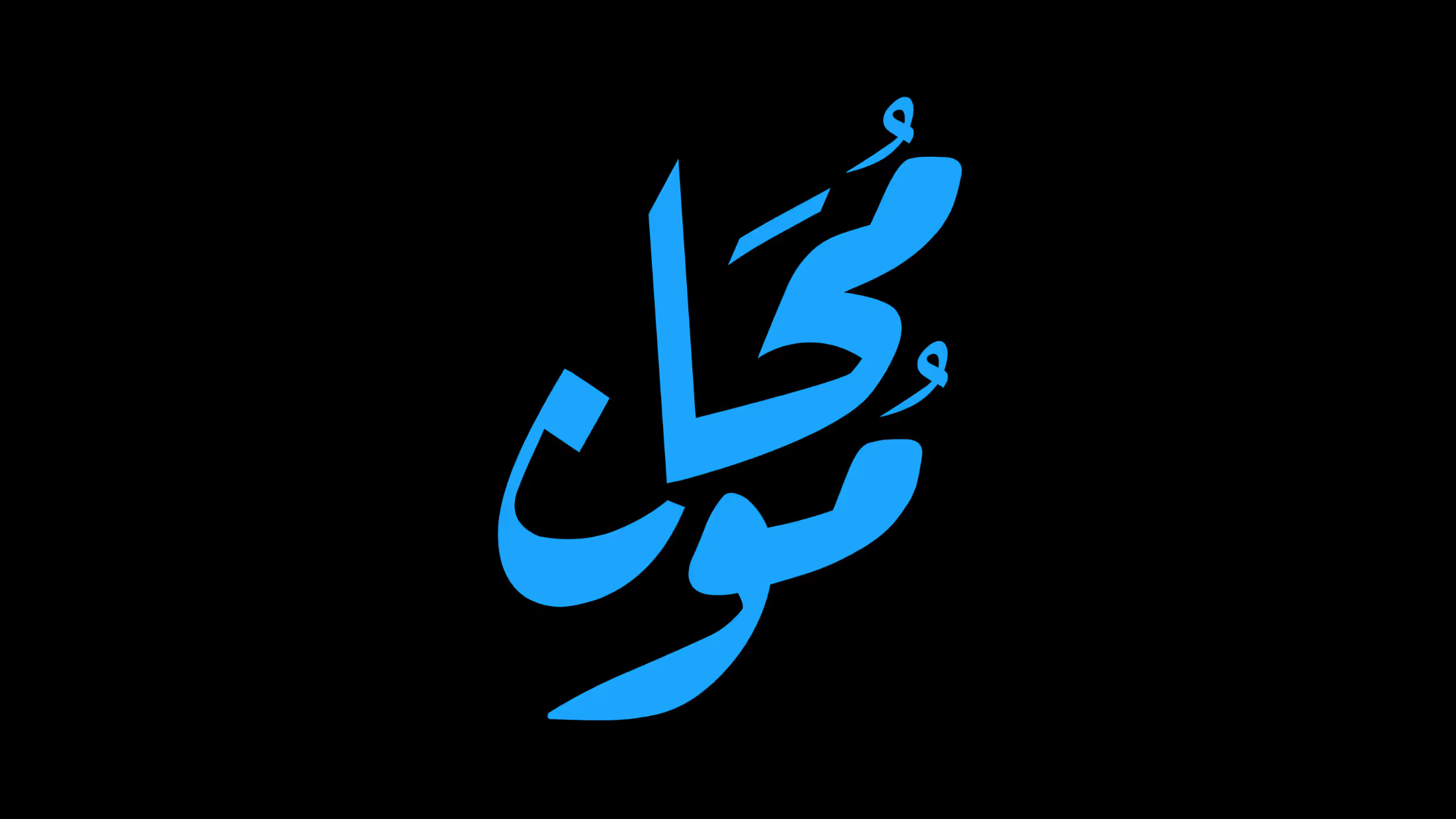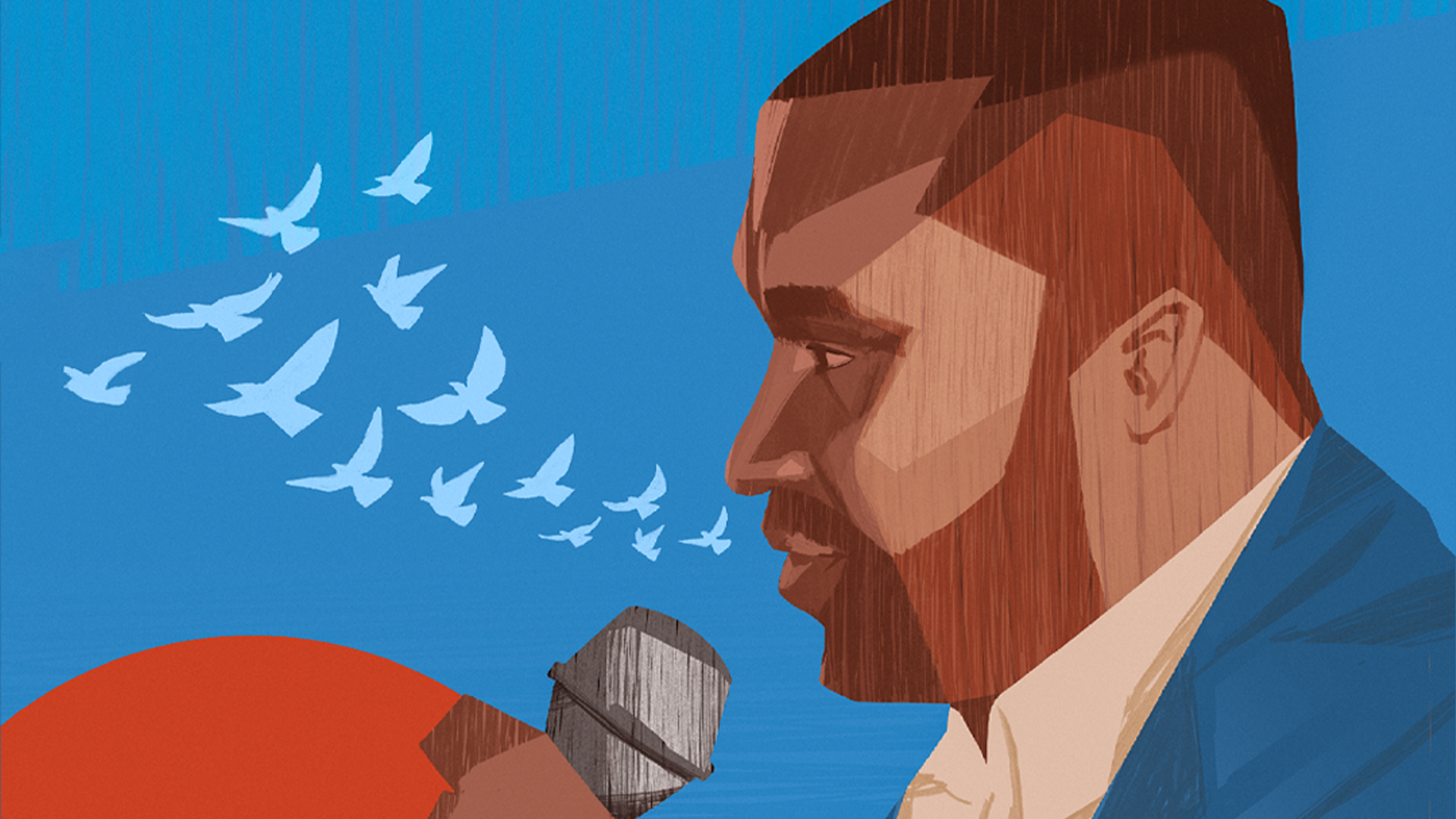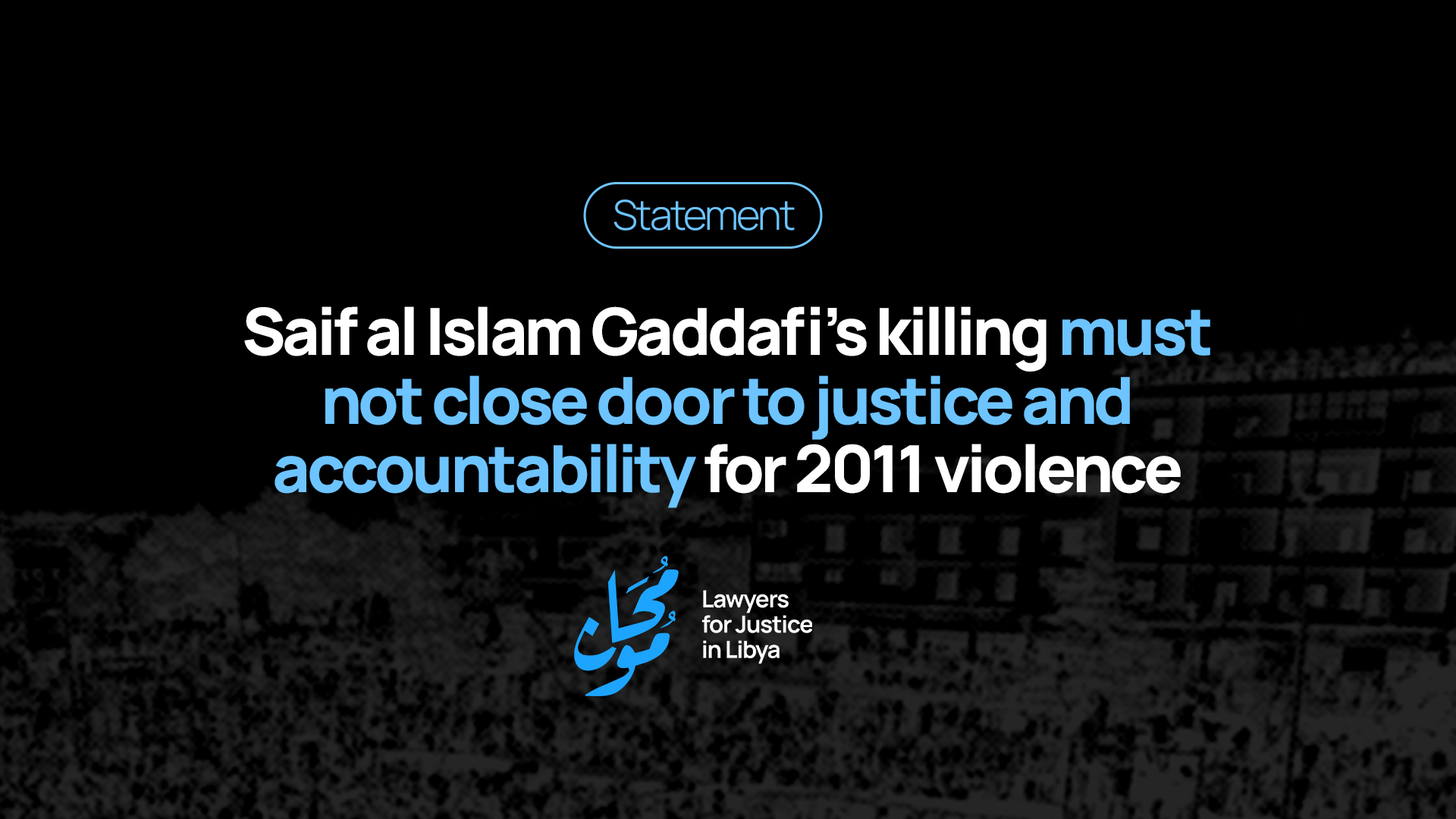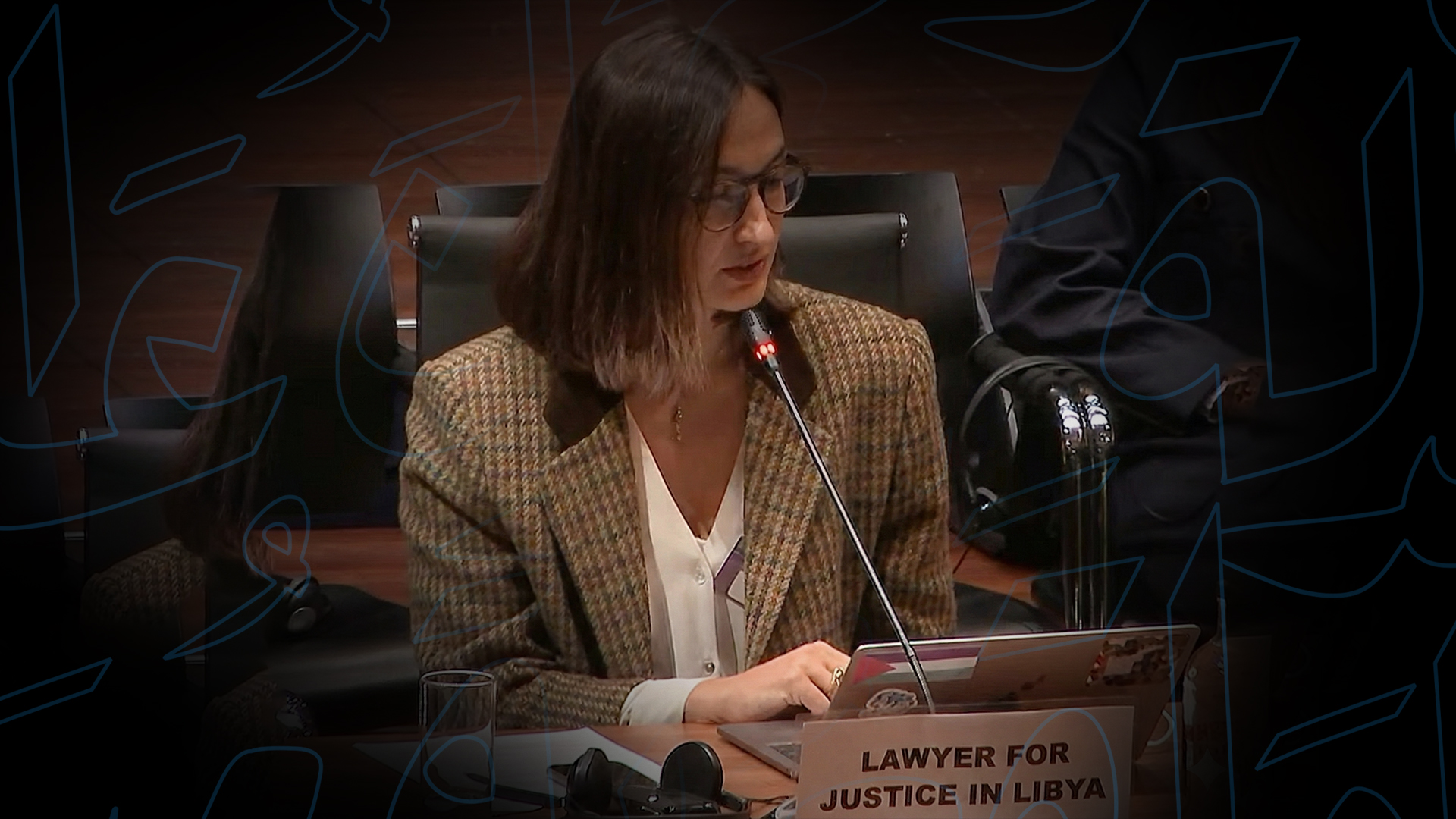Libyan organisations call on authorities to stop draconian laws and civil society crackdown
On 13 March 2023, the Director of the Department of Foreign Affairs and International Cooperation at the Office of the Prime Minister for the Government of National Unity (GNU) in Libya issued circular no. 5803 effectively instructing Libya’s Civil Society Commission to revoke the licenses given to all non-governmental organisations (NGOs) established since 2011. This renders all civil society organisations (CSOs) illegal, ultimately closing down Libya’s civic space entirely.
Circular no. 5803 is based on a legal opinion held by the law department of the High Judicial Council on 8 March 2023. The law department’s opinion concludes that NGOs can only legally operate on the basis of legislation. In this case, Law 19 of 2001 on the organizing of NGOs1 should be applied as the most recent (and only) legislation enacted. Law 19 is a Gaddafi-era law that requires an NGO to have the approval of the security apparatus and allows the executive de facto control of their activities. To silence dissenting voices critical of the current status quo, the GNU and particularly the office of the Prime Minister Abdel Hamid Dbaiba, has reverted to Gaddafi-era laws to shut down civic space and muffle independent voices.
However, as a result of criticism from within and outside of Libya, on 21 March 2023, Prime Minister Dbaiba issued ministerial Circular no. 7, an indication that the GNU has backtracked slightly from the initial 13 March decree. The Circular allows the continuation of the work of local and international NGOs provided they regularise their status under Law 19 through the procedures approved by the Committee for the Study of the Registration of Civil Associations that was established on 19 February 2023 under decree 138.2 The Libyan authorities have yet to publish clear and concrete guidelines for the committee’s activity. Similarly, noting the committee’s critical mandate as final decision-maker in approving or rejecting NGO registration requests, criteria for selecting qualified and independent members to this committee have yet to be published.
The 13 March circular is the latest of a series of attacks on Libya’s civil society. Since the fall of the Gaddafi regime in 2011, NGOs have played a vital role in documenting human rights abuses, supporting the victims of international crimes, building social cohesion, and providing humanitarian assistance. These organisations have continued working despite threats from armed groups and militias, and continued violence targeted at human rights defenders. In a recent incident on 23 February 2023, international organisations working in Sabha were raided and several staff were detained for hours by the Criminal Investigation Department.
Libyan human rights defenders who advocate for the protection of human rights in international fora are also criminalised, tried, and sentenced by the Libyan authorities. This was observed in the detention of activists associated with the Tanweer movement. From November 2021 – March 2022, seven young men were arrested by the Internal Security Agency in Tripoli3. Videos of forced confessions by the detainees under coercive circumstances were posted on Facebook, with various charges brought against them.4 What was first an arrest under decree 286 has shifted to charges under the penal code where the men can face up to ten years in prison.5 In December 2022, four of the men were sentenced to three-years imprisonment “with hard labour” and fined by a domestic court in Tripoli.6
The lawfare directed at civil society is one part of a broader repressive tendency which limits the exercise of rights including freedom of opinion, expression and the right to the freedom of assembly. The same tendency is visible in the use of the Anti-cybercrime law issued 27 September 2022 that has recently been utilised as a tool to silence non-conformist voices. This crackdown has been highlighted by rights groups7, UN bodies8 as well as member states in their UN Security Council briefings.9 The final report of the Fact-Finding Mission (FFM) to Libya, mandated by the Human Rights Council, states: “Libyan authorities, notably the Internal Security Agency, are curtailing the rights to assembly, association, expression and belief to ensure obedience, entrench self-serving values and norms, and punish criticism against authorities and their leadership”.10
Restricting the work of NGOs contravenes Article 15 of Libya’s constitutional declaration of 2011 which guarantees the freedom of association: “The state shall ensure freedom of establishing political parties, associations and other civil society organizations, and shall adopt a statute for their regulation.“11 It is also in breach of Libya’s international legal obligations, including the International Covenant on Civil and Political Rights (ICCPR) to which Libya is a signatory.
As Libya gears up for potential elections in 2023, civil society is set to play a vital role in this process, including by monitoring the integrity of the voting process. However, as the 13 March memo effectively criminalises independent election monitoring, this renewed crackdown only demonstrates the paranoia and bad faith of the current government and raises reasonable question of its intent to transition the country towards democracy.
Libya’s competing governing bodies appear to be able to put aside their violent disagreements and unite over one thing: suffocating civil society. CSOs in Libya are under attack, left in a situation of deep uncertainty, with little clarity on their legal status and no guarantee of security or protection.
In response to this, the undersigned call on the Libyan authorities to:
- Repeal all repressive laws and regulations intended to impede CSOs and their activities in Libya;
- Until the new House of representative enacts a new NGO law, the GNU must, through consultations with CSOs, issue a decree that is in compliance with international legal standards to regulate the work of CSOs;
- Ensure all forms of abuse including threats and reprisals against CSOs and human rights defenders are investigated and that those responsible for such abuses are held accountable;
- Ensure the full protection of the human rights defenders to enable them to pursue their work and activities in Libya;
- Take urgent measures to halt the systematic media campaigns which incite hate and violence against human rights defenders and CSOs.
- Ensure that the CSC is a separate body operating independently, with its own budget, to guarantee that its work will not be subject to interference from political authorities, central intelligence forces or the security sector, including armed groups and militias.
Signatory organisations:
- Lawyers for Justice in Libya (LFJL)
- Defender Center for Human Rights
- Libya Crimes Watch
- Aman against Discrimination (AAD)
- Libya Almostakbal Centre for Media and Culture
- Libyan Women’s Platform for Peace
- Solidarity for women Support and Employment
- The Libyan Network for the support and empowerment of women
- Meras Development Organization
- Tafarrod Empowerment Organization
- Almizan For Development organisation
- Washm women studies Center
- Nuasi for Gender Equality
- FabLab Libya Foundation
- That Training Organization
- AlLabbah Women's Charity Association
- Herodotus Organization for Sustainable Development
- Al-Wad Center for Psychological and Social Support
- Arkeno Arts Organization
- Libyan organization for human rights
- international Arabic organization for women's rights
- I am a Libyan Woman, but my Child is a Foreigner Association for Civil and Charitable work
[1] Law no. (19) of 2001 on the reorganization of NGOs.
[2] Decree 138 establishes a committee for studying registration requests for NGOS. It tasks the committee with studying requests for registration from NGOs and from private local associations. The committee is also tasked with referring recommendations on NGOs and private local associations to the council of ministers in Tripoli and with setting up a register and a database of NGOs. It is noteworthy that the committee is to be made up of four members, of which one is president. The president is to issue decisions in the name of the other members. Furthermore, the decree requires that two of the four members of the committee be individuals with disabilities.
[3] Report of the Independent Fact-Finding Mission on Libya (27 June 2022).
[4] Office of the High Commissioner for Human Rights, Deepening crackdown on civil society (22 March 2022).
[5] Decree 286 regulates the work of the governmental Civil Society Commission (CSC), the body responsible for registering and monitoring Libya’s NGO’s. The decree gives the CSC sweeping powers over the legal status and work of Libya’s civil society. Placing restrictive registration criteria including requirements to obtain prior approval from the CSC including any international advocacy engagements.
[6] Report of the Independent Fact-Finding Mission on Libya (27 March 2023).
[7] Amnesty International, The Internal Security Agency Intensifies Crackdown on Freedom of Expression (23 March 2022); Human Rights Watch, Draconian Decree Would Restrict Civic Groups (4 April 2021); Cairo Institute for Human Rights Studies, Amendment to Draconian Law 19/2001 on Civil Society Offers no Solution (23 March 2023).
[8] United Nations Support Mission in Libya, Report of the Secretary-General (9 December 2022) at paragraph 47, 52 and 53. See also Office of the High Commissioner for Human Rights, Deepening crackdown on civil society (22 March 2022).
[9] Permanent Mission of Swtizerland to the United Nations, Briefing: The Situation in Libya (27 February 2023).
[10] Report of the Independent Fact-Finding Mission on Libya (27 March 2023).
[11] Libya‘s constitutional declaration (17 February 2011).





